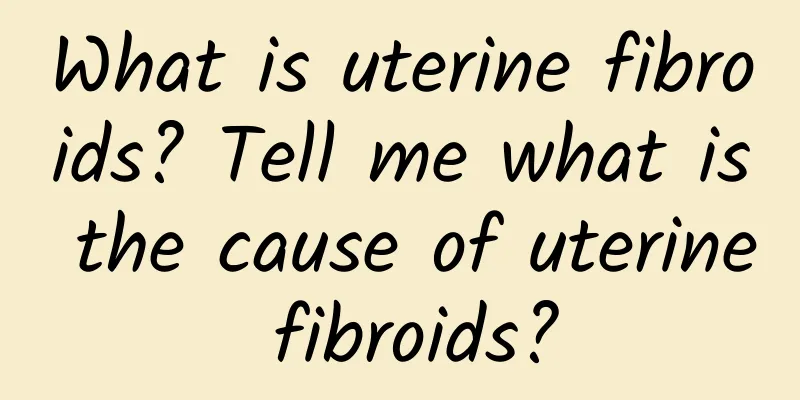What is the cause of cervical cyst after uterine fluid accumulation

|
The occurrence of intrauterine fluid and cervical cysts after abortion may be related to a variety of factors, including postoperative trauma and infection, changes in hormone levels in the body, and individual genetic susceptibility. Damage to the endometrium during surgery and incomplete disinfection may lead to bacterial infection, which may be an important cause of intrauterine fluid. Changes in hormone levels in the body, such as hormone fluctuations caused by artificial abortion, can also affect the normal function of the uterus and cervix. Individual genetic factors may also make some people more susceptible to the formation of cervical cysts. The causes of these symptoms can be explained in detail from the following aspects. Improper abortion may cause damage to the endometrium or infection in the uterine cavity, which may lead to the formation of uterine effusion. Hormonal imbalance that is not repaired in time after surgery may affect the normal healing of the uterus and increase the risk of disease. Environmental factors such as postoperative hygiene and personal health management can also affect the recovery process. The formation of cervical cysts is often related to local infection or chronic inflammatory stimulation in the cervix, which can lead to the inability of glandular secretions to be discharged normally, eventually forming cysts. The causes of these symptoms can be explained in detail from the following aspects. Improper abortion may cause damage to the endometrium or infection in the uterine cavity, which may lead to the formation of uterine effusion. Hormonal imbalance that is not repaired in time after surgery may affect the normal healing of the uterus and increase the risk of disease. Environmental factors such as postoperative hygiene and personal health management can also affect the recovery process. The formation of cervical cysts is often related to local infection or chronic inflammatory stimulation in the cervix, which can lead to the inability of glandular secretions to be discharged normally, eventually forming cysts. In order to avoid this situation or to prevent it from happening or getting worse, you need to pay attention to several aspects after surgery. The first is to have regular medical checkups to detect any abnormal changes early; the second is to maintain good personal hygiene and a healthy lifestyle, which can effectively promote recovery after surgery. You need to adjust your diet and exercise properly to enhance your body's immune system. Follow your doctor's instructions for proper postoperative care, and if you experience persistent discomfort, you should consult a doctor in time so that appropriate medical measures can be taken for specific problems. |
<<: What tests are needed for uterine fibroids
>>: Causes of female vulvar pruritus
Recommend
Experts briefly introduce dietary therapy for treating dysmenorrhea
Among the common methods of treating dysmenorrhea...
What are the preventive measures for dysmenorrhea?
Dysmenorrhea is a very common disease in life. Ma...
How to treat cervical erosion in a gynecological hospital
The chance of female friends suffering from cervi...
What can I eat if I have hyperprolactinemia?
What foods can be eaten to regulate hyperprolacti...
Many factors can easily lead to the occurrence of ectopic pregnancy
Among the many gynecological diseases, ectopic pr...
What are the treatments for patients with cervical erosion?
Excessive vaginal cleaning or multiple abortions ...
What should I do with uterine fibroids? Three surgical treatments for uterine fibroids
1. Causes of uterine fibroids The etiology of ute...
Detailed introduction to the main prevention methods of cervical erosion
Nowadays, more and more people in my country suff...
What oil can I eat after minimally invasive surgery for uterine fibroids? What fruits can I eat after minimally invasive surgery for uterine fibroids?
Uterine fibroids are a common gynecological disea...
Can women with cervical erosion use tampons? The harm of improper use of tampons by patients with cervical erosion
In life, sanitary napkins or tampons are good &qu...
The most valuable auxiliary examination for threatened abortion
Every pregnant mother wants to give birth to a he...
What treatments would you choose for irregular menstruation?
What are the treatments for irregular menstruatio...
The most typical symptoms of patients with cervical hypertrophy
Cervical hypertrophy is also a common gynecologic...
What are the signs of miscarriage? There are three signs
The first is vaginal bleeding in women. When blee...
Identify dangerous souvenirs! Nutritional information + calculation formula
Linkou Hospital nutritionist Pan Xiaojun reminds ...









